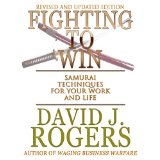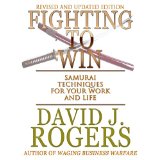“Nobody has a right to be unhappy, or to live in a way that makes them unhappy” (James Agee).

Glowing by Nadia Parsons
There are many paths to the top of a mountain, and there are many paths to a meaningful life readily available to us. Paths are as innumerable as stars, and everyone has more than one. If you think your paths are best, well then they’re best–for you, though even the person dearest to you might give you an argument. But even if they did, it wouldn’t matter. If you believe yours are best, no argument will convince you they aren’t. And if you believe someone else’s aren’t, no argument will convince you they are.
Some find that living what I call a “smart” life–a life rife with meaning and vitality and purpose involves acquiring wealth and luxury. Others–like me–have little interest in that at all. They can’t understand what the overly aggressive pursuit of wealth is all about and what makes pursuers of it tick. If you are a writer, artist, or actor, and I asked you about your attitude toward money I suspect you would be something like me.
Some people live to acquire power, and they run for political office or head a corporation. Others, like many artists, like to stay out of the limelight and are not interested in acquiring power, they prefer quiet, modest lives. Some other people like to win and are so competitive that they’ll bet you that their pat of butter will melt faster than yours or their elevator will beat yours to the top. But others find no meaning in competitiveness and couldn’t care less about butter pats or elevators.

Coating of Smog by Nadia Parsons
However they differ, all paths to meaning and living a smart life have this in common: for the people traveling them they have heart. Following paths that have heart brings you happiness. You don’t find meaning as if it’s lying around like a quarter on the sidewalk by a parking meter. You have to decide on the paths you’ll follow and hold them prominently in mind and commit yourself to them. That’s mature living.
These are ever-changing times. Everything is going faster. But here are paths that are leading people like you and me to meaningful creative lives.
Beauty
You and I have had moments of experiencing something so incredibly beautiful it was indescribable. It was then that we were reminded of what we had forgotten in the whirl of our everyday lives: we are insignificant and half the time we don’t know what we’re doing, but there’s pure joy in just being alive. The flow of life in our veins, in the world, before our eyes–the dazzling sun settled in the sky like a yellow coin, flopping in the whitest snow when we were children, sky-writing on a summer day in a clear sky, clouds, friends waving as they come down the street, a poem, a painting, the smell of a barbeque, a yelping dog chasing a squirrel in the yard– precious life at its simplest. What is more to be treasured than the energy I feel in my muscles right now, this moment, and the ability to think any idea I wish this moment, and excited now, to follow it wherever it leads?
Devotion to a Purpose.
A life without purpose is a meaningless existence. For many people life is tedious and unrewarding. But when, perhaps suddenly, they discover the purposes that ignite their imagination, their lives acquire a vital meaning. They focus on their most important purpose and their lives change instantly.
Adventure, Thrills, Excitement, and New Experiences.

Divisions by Nadia Parsons
This is the path of men and women of action: explorers, mountain climbers, high wire trapeze artists, etc. Race car drivers are the happiest they will ever be when they’re banking into a curve at 180 miles an hour.
Fun and Laughter.
Play comes naturally to animals, including humans. Every mother knows that even babies have a sense of humor. Smiles are universal. In every culture on earth a smile means the same thing. Laughter is therapeutic. There are more than five thousand laughter yoga centers worldwide.
Leading a Moral Life
“How lovely goodness is in those who, stepping lightly, go smiling through the world” (Virginia Woolf.) Our goodness tells us what we ought to do. During the Great Depression my mother found a hundred dollars on the floor of a bus. That was a lot of money in those days; money was scarce in our family. Instead of spending it she placed a notice in the newspaper, despite the fact that she and my father were broke, unemployed, and had a family to support. Here was a good woman and good man. No one claimed the money so it now belonged to my folks.
Achievement.
People often think of hard work and long hours as unpleasant and damaging to one’s health. They consider it something to be avoided, whatever the achievements it might lead to. It’s often thought that people who are like that are “work addicted.” Well, that’s true, they very well might be addicted, but hard work in pursuit of your purposes, overcoming obstacles to them, is a positive addiction. People who train hard every day to run a marathon–for that achievement–are addicted, and it’s positive. We applaud them. Psychologist George Valliant studied the lives of leading achievers among graduates of the Harvard Business School. He found that they had unusually excellent health, and good marriages and happy lives, in spite of seventy hour work weeks.
Living Up to Your Duties and Responsibilities.
A duty is an obligation. It’s what we owe. Even the word “duty” sounds like a burden to some people. But if we love what we owe the duty to, it is no burden at all, and we welcome it.
“Responsibility” is derived from the Latin “re-spurdere,” which means, “to answer the challenge.” We bear responsibilities to ourselves, our husband or wife, our children, our parents, our lovers, our friends, the earth, and all humankind. When we live up to them, we answer the challenge to a responsible life.

Climate Shift 2 by Nadia Parsons
Some people will shirk responsibility and refuse to answer the challenge whenever they can. You see that in personal life and at work. In any group or organization, given a task to perform, if one member of the group doesn’t do his job, the best workers will generally assume the responsibility he is avoiding rather than not accomplishing the task. To complete the task is their duty. Many people living smartly and meaningfully relish taking personal responsibility rather than being the pawns of circumstances. They owe that duty to themselves and to those who depend on them.
Some duties you bear as lightly as a feather and live up to gladly. But duties are not always pleasant. You would rather stay home on a rainy night when you are bone tired rather than driving twelve miles to visit your friend in the hospital. But you do what your duty requires you to do, without regard to how pleasant or unpleasant it is, and you’re proud of yourself and happy you answered the challenge. To lead a life of duties fulfilled is worthy of you.
Financial Security.
The need for security is a powerful human need, and people will do almost anything to satisfy it. It’s said, “Money can’t buy happiness.” But after having none of it for a long time and suffering, when you have it, it certainly does bring happiness. Some people have the need to acquire security, and when they do they’re at their best and leading a smart and happy life.
The Good Life
A life of ease, luxuries, good food, good drink, and good times brings meaning to the lives of many people. It has down through the long corridors of history. In the ancient Roman city of Timgat an inscription was found in the pavement which reads, “To hunt, to bathe, to gamble, to laugh, that is to live.”
Good Health
The young believe they are generally immune to illness, just as they are not quite convinced that they’re mortal and will not live forever. Older people know they are mortal and everything about the body goes through periods of disrepair. That’s why you hear them say, “The most important thing is your health.” For some people, attaining and preserving good health through such things as diet, exercise, and fitness is prominent in their life path.
Leisure
Some people value vacations, long weekends, or puttering around in nature. A famous little Zen poem reads: “Sitting quietly, doing nothing/ Spring comes/ And the grass grows by itself.” Wonderful nineteenth century American author and naturalist Henry David Thoreau wrote, “Time is but the stream I go fishing in.”
A Spiritual Life.

Clarity by Nadia Parsons
It’s been said that the essence of modern life is that nothing is sacred. But for many people who are leading a smart, meaningful life that’s not true at all. Some people find happiness in material objects, but others find it by turning away from outward things. They seek happiness inwardly, in the spirit. Many find meaning in the belief that they belong to something cosmic, something beyond human existence. They believe that we all come from God trailing clouds of glory and are the beneficiaries of divine grace, and that one’s soul can be elevated toward God. Walt Whitman wrote: “I see something of God each hour of the/ Twenty four and each moment then/ In the faces of men and women/ In my own face in the glass.”
Unhappiness.
Some people are happiest and seem most alive when they’re miserable. You might be able to name people like that. But in some ridiculous way, they may have found something that suits them. Their unhappiness may be deceptive. Listen to your friend bitterly complain about a terrible job, nagging wife, troublesome children, interfering in-laws, the price of gas, a bad movie, problems with the boss, too-tight shoes, a medical report, crooked politicians, traffic, etc. In the middle of their complaints interrupt him and ask, “Are you happy?” They will stop talking, smile, and say, “Yah, I’m pretty happy.”
The Respect of Other People
We have a need for family, for friends, for company, to fit in and be a part of society, to belong. But at the same time we also have the contrary need–to be unique, to be different, to be noticed and singled out and respected for who we are alone, individually, for ourselves.
Self-respect, Self-esteem.
Life isn’t a courtroom. People needn’t prove their worth to anyone else. But they do need to find themselves acceptable, approve of themselves, be a person they can believe in, feel proud of being someone they can confidently reveal to the world and not hide. They can boldly declare, “This with my flaws, weaknesses, and strengths is who I am.” Those who pursue a path of self-respect, no matter what circumstances they find themselves in, never lose sight of that goal. They strive never to do anything that is in any way unhealthy for them. Then they are in good company with themselves.
Loving and Being Loved
“Love is patient and kind…. Love bears all things, hopes all things, endures all things” (First Corinthians 13) “Love seeks only one thing. The good of the one loved” (Thomas Merton). We are intended to be loved and to love, and not to be lonely and unloved. We are not isolated islands in a sea of humanity. If we love, we will be loved. D.H. Lawrence wrote: “Those who go searching for love/ Only make manifest their own lovelessness/ Only the loving find love/ And they never have to search for it.” To have a day as I have and you have when everything turns against you, to arrive home, to be greeted by someone you love and who loves you, to see a smile, to hear laugher somewhere in the house, to be kissed: that is life at its fullest.
Sacrifice and Service.

Transitioning to Night by Nadia Parsons
Leading a life without concern for others becomes increasingly unsatisfying. We are capable of pettiness, jealousy, and selfishness, but we are also capable of unselfishness, compassion, helpfulness, kindness, and sympathy. “Man achieves fullness of being in…care for others. He expands his existence by bearing his fellow man’s burden….The deepest wisdom man can attain is to know that his destiny is to aid, to serve” (Abraham Joshua Heschel). Some people find great happiness devoting themselves to the wellbeing of others, and ask nothing in return. There are countless examples of such quiet self-sacrifice in everyday life. Someone set out this morning to help the needy, and someone else to comfort the sick, or to visit the home-bound, or to raise money for a charity. They make the other person’s problems their own. Helping to solve them, they are making the most of their lives.
There are many paths to the top of a mountain, and there are many paths to a meaningful life. What are you doing here on this earth with this life you’ve been granted gratis? Does it have meaning? How will you be remembered? What paths are you following?
The beautiful and powerful paintings featured in this post are by artist Nadia Parsons, the Sky Painter, whose path is to capture fleeting moments of change in the sky. “As we observe the sky,” the artist says, “we can become acutely aware of how small we are in contrast to the vast scale of the universe. We also have an opportunity to appreciate our importance as it coexists with fears of our own insignificance.” (Nadia Parsons, https://www.skypainterstudios.com/about/ )
© 2018 David J. Rogers
For my interview from the international teleconference with Ben Dean about Fighting to Win, click on the following link:
Interview with David J. Rogers
Order Fighting to Win: Samurai Techniques for Your Work and Life eBook by David J. Rogers

Click on book image to order from Amazon.com
or
http://www.barnesandnoble.com/w/fighting-to-win-samurai-techniques-for-your-work-and-life-david-rogers/1119303640?ean=2940149174379
Order Waging Business Warfare: Lessons From the Military Masters in Achieving Competitive Superiority

Click on book image to order from Amazon.com
or
http://www.barnesandnoble.com/w/waging-business-warfare-lessons-from-the-military-masters-in-achieving-competetive-superiority-revised-edition-david-rogers/1119079991?ean=2940149284030
 Writing is a time-consuming process of self-discovery, self-awareness, and self-expression that may satisfy a writer’s deepest needs. Some writers find that nothing can compete with, nothing can replace, the writer’s joy of creating. Many writers so saturate themselves with their work that it becomes a need as strong as sleep, sometimes stronger. Many writers think, “This writing that I am doing is essential to my fulfillment and well-being. At times I may be so involved I will forget to eat. I will forget to make love. I will block out distractions. I will arrange a life-style and personal habits and routines to accommodate my writing.”
Writing is a time-consuming process of self-discovery, self-awareness, and self-expression that may satisfy a writer’s deepest needs. Some writers find that nothing can compete with, nothing can replace, the writer’s joy of creating. Many writers so saturate themselves with their work that it becomes a need as strong as sleep, sometimes stronger. Many writers think, “This writing that I am doing is essential to my fulfillment and well-being. At times I may be so involved I will forget to eat. I will forget to make love. I will block out distractions. I will arrange a life-style and personal habits and routines to accommodate my writing.” Some writers do consider writing the most important role in their life and give other roles short shrift. Many writers would agree with Katherine Anne Porter who said that the “thing” between her and writing was the strongest bond she had ever had—stronger than any bond she had ever had with any person or activity. A survey showed that writers and poets are considered highly desirable occupations for a mate. But many are so consumed by writing, and work such long hours in such solitude, that they may make poor spouses. Nobel Prize winner Saul Bellow—married five times–said, “I have always put the requirements of what I was writing first—before jobs, before children, before any material or practical interest, and if I discover that anything interferes with what I’m doing, I chuck it. Perhaps this is foolish, but it has been the case with me.” (Saul Bellow in Conversations with Saul Bellow, p. 20)
Some writers do consider writing the most important role in their life and give other roles short shrift. Many writers would agree with Katherine Anne Porter who said that the “thing” between her and writing was the strongest bond she had ever had—stronger than any bond she had ever had with any person or activity. A survey showed that writers and poets are considered highly desirable occupations for a mate. But many are so consumed by writing, and work such long hours in such solitude, that they may make poor spouses. Nobel Prize winner Saul Bellow—married five times–said, “I have always put the requirements of what I was writing first—before jobs, before children, before any material or practical interest, and if I discover that anything interferes with what I’m doing, I chuck it. Perhaps this is foolish, but it has been the case with me.” (Saul Bellow in Conversations with Saul Bellow, p. 20) Here it seems appropriate to talk about my Law of Give Up to Get. The Law of Give Up to Get means simply that to get something important in life, you must give up something else. Gripe all you want, rail at the gods, and wish it weren’t so, but you have no choice. In the long run, perhaps you can have everything you desire. But at any one time, to get A you’ll have to give up B. To get X you must give up Y, and maybe you might have to give up Z too. To write, you have no choice but to give up something else—maybe more than one thing. That’s a law, the way life works: to achieve this, you’ll have to give up that—time, energy and other resources spent doing other things, attaining other satisfactions.
Here it seems appropriate to talk about my Law of Give Up to Get. The Law of Give Up to Get means simply that to get something important in life, you must give up something else. Gripe all you want, rail at the gods, and wish it weren’t so, but you have no choice. In the long run, perhaps you can have everything you desire. But at any one time, to get A you’ll have to give up B. To get X you must give up Y, and maybe you might have to give up Z too. To write, you have no choice but to give up something else—maybe more than one thing. That’s a law, the way life works: to achieve this, you’ll have to give up that—time, energy and other resources spent doing other things, attaining other satisfactions. Are there any roles in your life that can be supported with a smaller investment of time, energy, and other resources so that you can devote more time to writing? Are there any roles currently in your life you might dispense with?
Are there any roles in your life that can be supported with a smaller investment of time, energy, and other resources so that you can devote more time to writing? Are there any roles currently in your life you might dispense with?

 The manuscript Golding submitted was worn, torn, and stained when Monteith first saw it. It had obviously been rejected by other publishers. Even Monteith agreed that this work of a public school teacher was over-written, disorganized, repetitive–a mess–and seemed never to get started. After many rejections Golding was losing hope of having the book published, of ever being published.
The manuscript Golding submitted was worn, torn, and stained when Monteith first saw it. It had obviously been rejected by other publishers. Even Monteith agreed that this work of a public school teacher was over-written, disorganized, repetitive–a mess–and seemed never to get started. After many rejections Golding was losing hope of having the book published, of ever being published. be recognized as a person with a talent that can generate revenue. When a writer is discovered by an agent or publisher, their life changes for the better. This post is about writers who were discovered, then published, and found success–perhaps more success than they expected. There are so many writers with all the talent in the world who are trying very hard to be discovered by an agent or publisher who is trying as hard to discover them. There is a good chance that many writers we read would never have been published had they not been discovered by the right agent and a right publisher.
be recognized as a person with a talent that can generate revenue. When a writer is discovered by an agent or publisher, their life changes for the better. This post is about writers who were discovered, then published, and found success–perhaps more success than they expected. There are so many writers with all the talent in the world who are trying very hard to be discovered by an agent or publisher who is trying as hard to discover them. There is a good chance that many writers we read would never have been published had they not been discovered by the right agent and a right publisher. Finally a small publisher picked it up. However, this editor who discovered the book, was different. He was enthusiastic and said to Harold, “Your book is going to be a best seller.” Finally what Harold had been hoping for: someone had faith in the book and its spiritual message. It became a phenomenal best -seller, the most popular book in the world, selling twenty -five million copies.
Finally a small publisher picked it up. However, this editor who discovered the book, was different. He was enthusiastic and said to Harold, “Your book is going to be a best seller.” Finally what Harold had been hoping for: someone had faith in the book and its spiritual message. It became a phenomenal best -seller, the most popular book in the world, selling twenty -five million copies.
 Persistent and confident in spite of failures, Jack London submitted his manuscripts hundreds of times to publishers that rejected the work before an editor discovered him. But after that, within a single year London, a self-educated writer, took the literary world by storm and was the most popular, most critically and financially successful novelist/short story writer in the world.
Persistent and confident in spite of failures, Jack London submitted his manuscripts hundreds of times to publishers that rejected the work before an editor discovered him. But after that, within a single year London, a self-educated writer, took the literary world by storm and was the most popular, most critically and financially successful novelist/short story writer in the world. Invariably I would think, “All these incredibly talented performers I see–artists who are looking for a big break and are dying to be discovered.” Much like them, so many writers with so much talent also are trying very hard to be discovered. Without the people who discovered William Golding, Thomas Wolfe, Harold Kushner, or Jack London, would we have ever heard of those famous authors?
Invariably I would think, “All these incredibly talented performers I see–artists who are looking for a big break and are dying to be discovered.” Much like them, so many writers with so much talent also are trying very hard to be discovered. Without the people who discovered William Golding, Thomas Wolfe, Harold Kushner, or Jack London, would we have ever heard of those famous authors? focus on a system to improve your creative performance is to be aware of what you are trying to accomplish–with your life, and in this year, this day, this moment. When you acquire the habit of saying to yourself often in your daily life–morning, noon, and night–“Focus on your purpose,” those words become a hypnotic motto that stirs your muscles and mind to action. Then your life takes on a quality that is now becoming rare even among gifted creators–vital intensity that facilitates the production of works that can be pointed to and admired. That single goal–producing works as a result of talent combined with discipline–is more powerful than all other creative goals.
focus on a system to improve your creative performance is to be aware of what you are trying to accomplish–with your life, and in this year, this day, this moment. When you acquire the habit of saying to yourself often in your daily life–morning, noon, and night–“Focus on your purpose,” those words become a hypnotic motto that stirs your muscles and mind to action. Then your life takes on a quality that is now becoming rare even among gifted creators–vital intensity that facilitates the production of works that can be pointed to and admired. That single goal–producing works as a result of talent combined with discipline–is more powerful than all other creative goals. that specialty. And you must
that specialty. And you must  free of suffering are the goal in Buddhism. The Buddhist Eightfold Path consists of eight ideals that when practiced bring an upright and happy life. They are eight prescriptive “rights,” including right association–being careful about associating with good, wholesome, even holy people; right intent–making up your mind as to the one main purpose in life you really want to pursue; right speech–no lying, backbiting, or slander; right thoughts–thinking compassionately, generously, and with goodwill; right conduct–not killing, stealing, or lying; right effort–using your will power and taking action to achieve a good life; right concentration–the use of techniques to enhance concentration and enlightenment. And there is right livelihood–doing what you’re best suited to do in an honest occupation that harms no one.
free of suffering are the goal in Buddhism. The Buddhist Eightfold Path consists of eight ideals that when practiced bring an upright and happy life. They are eight prescriptive “rights,” including right association–being careful about associating with good, wholesome, even holy people; right intent–making up your mind as to the one main purpose in life you really want to pursue; right speech–no lying, backbiting, or slander; right thoughts–thinking compassionately, generously, and with goodwill; right conduct–not killing, stealing, or lying; right effort–using your will power and taking action to achieve a good life; right concentration–the use of techniques to enhance concentration and enlightenment. And there is right livelihood–doing what you’re best suited to do in an honest occupation that harms no one. Success in a creative field (in fact success in any field) is not attributable to one thing alone such as talent or IQ as many people believe, or three or four things. I believe there are eight components. It’s important to understand what the eight components are and the questions they will answer:
Success in a creative field (in fact success in any field) is not attributable to one thing alone such as talent or IQ as many people believe, or three or four things. I believe there are eight components. It’s important to understand what the eight components are and the questions they will answer: their creative lives by means of the work they do. If they are unable to work or the work is poor quality or is stopped-up and doesn’t go well, they suffer. Regarding the necessity of a creator to
their creative lives by means of the work they do. If they are unable to work or the work is poor quality or is stopped-up and doesn’t go well, they suffer. Regarding the necessity of a creator to  There isn’t one universal work/production program that suits all creators. A production program won’t work if it’s imposed. Each creator’s program will have to be idiosyncratic–custom-designed by yourself for yourself. To find the ways and means to improve the quantity and quality of your production, you should experiment and try out different approaches until the best work/production program suited to yourself is found.
There isn’t one universal work/production program that suits all creators. A production program won’t work if it’s imposed. Each creator’s program will have to be idiosyncratic–custom-designed by yourself for yourself. To find the ways and means to improve the quantity and quality of your production, you should experiment and try out different approaches until the best work/production program suited to yourself is found. For high quality uninterrupted work to happen, not all, but most creators need isolation and solitude. “The concentration of writing requires silence. For me, large blocks of silence. It’s like hearing a faint Morse code…a faint signal is being given and I need quiet to pick it up” (Philip Roth). Some creators prefer noisy environments. But even the feeling that you might be interrupted interferes with creative thought.
For high quality uninterrupted work to happen, not all, but most creators need isolation and solitude. “The concentration of writing requires silence. For me, large blocks of silence. It’s like hearing a faint Morse code…a faint signal is being given and I need quiet to pick it up” (Philip Roth). Some creators prefer noisy environments. But even the feeling that you might be interrupted interferes with creative thought. production goals continuously in mind. Production ebbs and flows. Some days work comes out of you in torrents. You’re in overdrive. But other days–nothing. But one way or another,
production goals continuously in mind. Production ebbs and flows. Some days work comes out of you in torrents. You’re in overdrive. But other days–nothing. But one way or another,  A curious thing would happen. The quantity group would also produce the highest quality work. The quantity group would churn out streams of work and learn from their many mistakes and develop wide assortment of skills. But the quality group would get caught up the elusive concept of perfection and grandiose dreams and would become paralyzed. Some creators produce 10, 15, or 25 times more works than other creators. Those who produce the most works usually rise higher, do better work, and find a greater sense of accomplishment.
A curious thing would happen. The quantity group would also produce the highest quality work. The quantity group would churn out streams of work and learn from their many mistakes and develop wide assortment of skills. But the quality group would get caught up the elusive concept of perfection and grandiose dreams and would become paralyzed. Some creators produce 10, 15, or 25 times more works than other creators. Those who produce the most works usually rise higher, do better work, and find a greater sense of accomplishment. If you neglect an activity for just two days you’ll function much less effectively when you resume work. In writing and painting, as in everything else, inactivity leads to the atrophy of abilities. Your level of motivation affects your willingness to work. The quantity of your production is in direct proportion to the intensity of your
If you neglect an activity for just two days you’ll function much less effectively when you resume work. In writing and painting, as in everything else, inactivity leads to the atrophy of abilities. Your level of motivation affects your willingness to work. The quantity of your production is in direct proportion to the intensity of your 

 Why what I’m going to say now is true, no one has been able to figure out, but almost all people relax their efforts when they get close to achieving even their most important goals. They struggle and struggle and then seem to get lazy and disinterested. They are like a sprinter who runs fast to the tape and slows down or stops. But good coaches advise runners to “run through the tape.” Whatever you do, don’t relax just when you’re getting close to success, but persist in applying your utmost energy
Why what I’m going to say now is true, no one has been able to figure out, but almost all people relax their efforts when they get close to achieving even their most important goals. They struggle and struggle and then seem to get lazy and disinterested. They are like a sprinter who runs fast to the tape and slows down or stops. But good coaches advise runners to “run through the tape.” Whatever you do, don’t relax just when you’re getting close to success, but persist in applying your utmost energy Why are you and I so afraid of failure? Many people live in terror of it and feel they must never fail, but always succeed, trailing clouds of glory. Yet failure can be a blessed life-changing event. If you experience only successes, you come to expect quick and easy results, and your sense of confidence is easily undermined if you suffer a setback. Setbacks and failures serve two useful purposes: Not only do they show us that we need to make changes and adjustments in order to gain the success we are seeking, but also they teach us that success usually requires confident, persistent, skilled, focused effort sustained over time. Once you set failures aside and become convinced that you have what it takes to succeed, you quickly rebound from failures. By having courage and sticking it out through tough times, you come out on the far side of failures with even greater confidence and commitment.
Why are you and I so afraid of failure? Many people live in terror of it and feel they must never fail, but always succeed, trailing clouds of glory. Yet failure can be a blessed life-changing event. If you experience only successes, you come to expect quick and easy results, and your sense of confidence is easily undermined if you suffer a setback. Setbacks and failures serve two useful purposes: Not only do they show us that we need to make changes and adjustments in order to gain the success we are seeking, but also they teach us that success usually requires confident, persistent, skilled, focused effort sustained over time. Once you set failures aside and become convinced that you have what it takes to succeed, you quickly rebound from failures. By having courage and sticking it out through tough times, you come out on the far side of failures with even greater confidence and commitment. The effect of
The effect of  Confidence is needed if you are to be successful as an artist. Make it a point to never lose confidence. If you find yourself losing it, use affirming statements, such as “I can do this; I believe in myself.’
Confidence is needed if you are to be successful as an artist. Make it a point to never lose confidence. If you find yourself losing it, use affirming statements, such as “I can do this; I believe in myself.’ The most successful people have high career aspirations, are confident, and generally attribute their success to high effort and failure to lack of effort.
The most successful people have high career aspirations, are confident, and generally attribute their success to high effort and failure to lack of effort. Creative people who are the most likely to ask for help are those with a high opinion of themselves, while those with a low opinion of themselves are the least likely, although they may be the most in need of it and would profit from it. Asking for help shows that you’re serious about reaching your goals. Useful feedback can help you evolve and reach high levels of satisfaction and achievement.
Creative people who are the most likely to ask for help are those with a high opinion of themselves, while those with a low opinion of themselves are the least likely, although they may be the most in need of it and would profit from it. Asking for help shows that you’re serious about reaching your goals. Useful feedback can help you evolve and reach high levels of satisfaction and achievement.



























